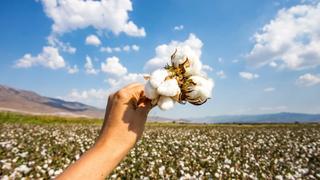Every time Madhuri Khadse and other women farmers go to Agricultural Produce Market Committee (APMC) mandis to sell their produce, the ‘gaze’ of men leaves them feeling unsafe and uncomfortable.
Hence, most avoid going to mandis , which are dominated by men, and instead sell their produce to village middleman at a lower price.
“Women farmers have to deal with traders, merchants, middleman and coolies and hardly do you see women in these roles. Mandis are not women-friendly and it is impossible for women to deal with the situation,” said Madhuri, who comes from Yavatmal district in the Vidarbha region. She adds that the government needs to ensure more women participation in APMC mandis and also start village-level procurement so that women farmers get the appropriate price for their produce.
“In mandis , you can sense the language and looks which make you uncomfortable,” said Madhuri, adding that women farmers are mostly not empowered to tackle the men in the mandis .
Rising participation
Per Census 2011, the extent of women's participation in agriculture as cultivators (main and marginal) is to the tune of 3.60 crore (30.33 per cent). As agricultural labourers (main and marginal), it is about 6.15 crore (42.67 per cent).
The Agriculture Census shows that the percentage share of female operational holders has increased from 12.79 per cent in 2010-11 to 13.96 per cent in 2015-16. Based on these figures, the Census concluded that more and more women are participating in the management and operation of agricultural lands. About 18 per cent of the agricultural households in India are led by women.
“But the issues of land ownership, credit, water, seeds and markets are not yet addressed,” said activist Manisha Tokle. “Women cultivate but don’t get the deserved price for their produce. Mandis are still a major hub of agri trading and women are unwilling to go there. Men-dominated mandis have a direct impact on the income of women farmers”
Off limits
Interestingly, women traders who have licence to trade in mandis never come for business and their husbands operate on their behalf, say women farmers.
“Women self-help groups (SHGs) could be roped in for the procurement process,” said Seema Kulkarni of the Mahila Kisan Adhikaar Manch (MKAAM), a forum working for women farmers’ rights. “This is the right time to support women who are active in cultivation. Women-friendly mandis will encourage women farmers. It is high time that we addressed this problem.”







Comments
Comments have to be in English, and in full sentences. They cannot be abusive or personal. Please abide by our community guidelines for posting your comments.
We have migrated to a new commenting platform. If you are already a registered user of TheHindu Businessline and logged in, you may continue to engage with our articles. If you do not have an account please register and login to post comments. Users can access their older comments by logging into their accounts on Vuukle.